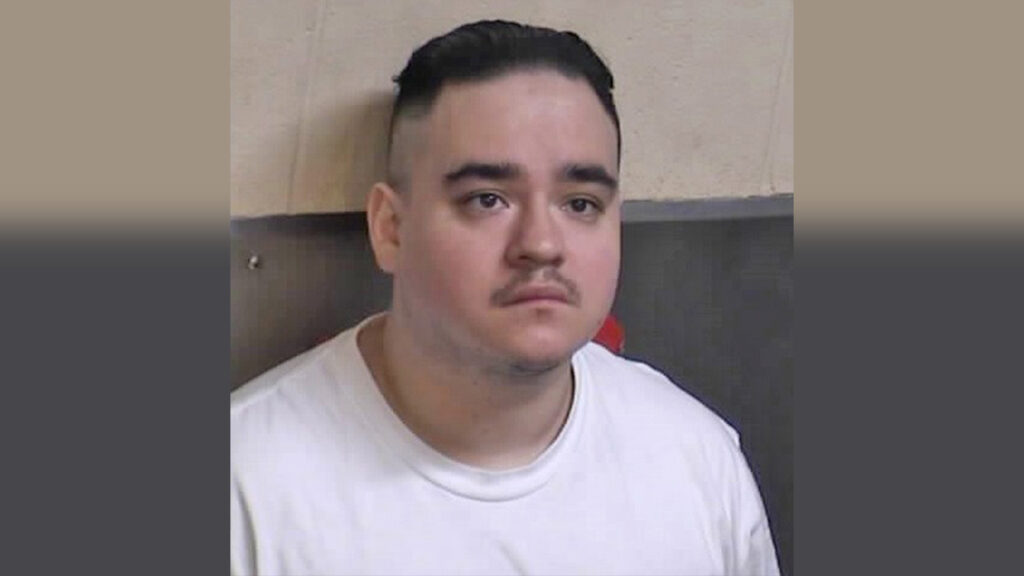Share
Six years ago, as California strained to emerge from the Great Recession, Gov. Jerry Brown worked a minor political miracle — a rebalancing of the massive state pension systems for public employees.

by Judy Lin
CALmatters
Now, as Brown prepares to leave office — his own pension at hand, after five decades in public service — even that hard-won modicum of fiscal change could be loosened. In a case that went to oral arguments this week, the California Supreme Court is weighing a key legal precedent that could restore the generous pension formulas Brown worked so hard to tighten.
Brown, who at 80 has already surpassed the average retirement age of state workers by 22 years, predicts that he’ll win. But Wednesday’s proceedings made it clear that workers’ arguments are also compelling.
Whatever the ruling, Brown’s successor, Gavin Newsom, will have to cope with the outcome. And—though the state’s unfunded liabilities persist, and economists warn another recession could be just around the corner — Newsom will face a very different political landscape. Should California land in another downturn, Brown’s pension reform miracle could be difficult, if not impossible to repeat.
Everyone Agrees That Workers Are Entitled to the Pensions
The case heard by the high court involves the California Rule, a legal precedent that requires the state to compensate public employees if their retirement benefits are lessened. In a challenge brought by Cal Fire Local 2881, the firefighters union argues that the ability to purchase additional years of service credit toward retirement, known as “airtime,” is a pension benefit that employees rely on as part of their decision to go into public service.
Brown’s attorneys counter that airtime was never intended by the Legislature to be a vested right and never negotiated through collective bargaining. Therefore, the state can take it away.
Everyone agrees that workers are entitled to the pensions they earn for work that’s already been done. And the argument might seem to be over a procedural technicality on the surface.
But if the court sides with Brown, it could open the possibility of future governors and legislatures modifying current employees’ pensions for prospective work, and perhaps setting a new precedent in which already negotiated benefits are fair game. If the court sides with the union, it would bind the state’s finances and commit taxpayers to paying already expensive retirement benefits.
On a larger scale, the case also could mark the end of a Brown-led era of fiscal reform in Sacramento. A blue-state Democrat with a lifelong tendency against the spending his party was known for, the frugal Brown had the experience and political capital to challenge public employee unions who typically hold powerful sway over Democratic politicians.
Newsom Pledged to Unions That He Will Protect Their Pensions
Newsom is newer and younger, and won his office in part with strong union backing. In campaign statements, he pledged to unions that he will protect their pensions; in fact, state firefighters cited Newsom’s commitment as one reason for giving the governor-elect their endorsement.
Both of those developments favor the priorities of public employee unions, as does the seemingly flush economy of the moment. California is projecting a $15 billion surplus this year, compared to a $27 billion deficit when Brown returned for his second stint in the governor’s office. The unemployment rate stood at 4.1 percent in October, compared to 12.1 percent when Brown was sworn in in January 2011.
When the Great Recession cratered state finances and the public gained awareness of generous retirement benefits, Brown was able to leverage those issues to successfully champion a package of changes from the Public Employee Pension Reform Act of 2012 with tacit approval from labor leaders.
While Brown did not get key changes needed to slow down the growth in retirement costs, the Legislature did agree to what the governor called the “biggest rollback to public pension benefits in the history of California.” Among other money-saving measures, Brown was able to raise the retirement age for new employees, ban retroactive pension increases, stop practices such as hoarding vacation and sick time to inflate calculations for retirement benefits and ban the purchase of additional years of service.
Brown’s 2012 Changes Infringed on Their Employer’s Contractual Obligation
Multiple labor unions sued, arguing that Brown’s 2012 changes infringed on their employer’s contractual obligation to provide retirement benefits at the level that was promised on their first day of work. That premise — the California Rule — left state and local governments with little room for savings.
Prior to Wednesday’s high court hearing, lower courts weighed in on the precedent with mixed messages.
In a 2016 ruling upholding a lower court’s decision, Justice James A. Richman of California’s First District Court of Appeal broke from decades of court decisions in finding the Legislature can alter pension formulas for current employees and reduce their anticipated retirement benefits. He wrote that a public employee has a right to a “reasonable” pension, not “the most optimal formula of calculating the pension.”
But another appeals court came to a different conclusion about the “California rule” by deciding in favor of union employees in Alameda, Contra Costa and Merced counties. While the justices agreed there are limits to the California Rule, they said benefit adjustments require “compelling evidence” showing that the changes are necessary to the success of the pension system.
The Supreme Court agreed to take up the issue and is first hearing the firefighters’ case over whether airtime is a vested right. While Adams, for the firefighters union, said he hopes the court will recognize that airtime is earned through service, Brown’s lawyers argue taking away the optional benefit doesn’t mean the employee gets less in pensions.
Searching for Where to Draw the Line
Brown’s lawyers wrote in a brief that although airtime was thought to be cost neutral, employees could purchase fictional years of credit “often as much as 40 percent below the actual cost.”
During Wednesday’s oral argument in Los Angeles, the justices seemed to be searching for where to draw the line that would protect workers without giving them limitless retirement benefits.
Chief Justice Tani Cantil-Sakauye questioned labor attorney Greg Adam about how airtime is protected by the state Constitution when the employee hasn’t performed the work to earn it. And Justice Goodwin Liu wondered aloud whether pension rights extend to life insurance, health insurance or a sabbatical leave that may be offered during employment.
Then Liu turned to Brown’s attorney, Rei Onishi, to ask if the state has a right to change benefit formulas midstream in a worker’s career, which stikes at the heart of the California rule. Onishi said yes if it applies to prospective work. He reasoned that because a worker hasn’t earned the benefit, it’s not an impairment.
That brought on questions from Justice Leondra Kruger about whether the Legislature could wipe away benefits for a class of existing state employees going forward.
The Realities of Democratic Politics Weren’t Far From the Courtroom
Onishi responded that that wouldn’t be likely because “other cases of this court have said you have a right to a substantial and reasonable pension as soon as you begin employment. I think completely terminating the system going forward, prospectively, would certainly raise questions about that.”
Though the hearing focused on legalities, the realities of Democratic politics weren’t far from the courtroom. In an unusual move, the governor had his own attorneys argue the case rather than Attorney General Xavier Becerra — a choice that fueled speculation that Brown hoped to shield his attorney general, a Democratic elected official, from union pressure.
And prior to the hearing, the court dodged a thorny question about whether Brown’s most recent nominee to the bench could be impartial. Last month, Brown nominated long-time aide Joshua Groban, who would have provided him counsel on many legal matters. While it wasn’t known if Groban was involved in the case brought by the firefighters union, there was an open question about whether he would have to recuse himself—a question successfully sidelined when Groban’s confirmation hearing was set for Dec. 21, after this week’s arguments.
Governor-elect Newsom has said he would prefer to stay out of the courts to resolve pension disputes. When CALmatters asked him if the state should be allowed to renegotiate the future benefits of current workers, he suggested a legal fight wasn’t necessary.
The Economy Might Change His Mind
“Even with the California rule, we have the tools through collective bargaining to negotiate reforms and commensurate offsets,” Newsom said then.
Economists have been warning of an inevitable downturn; Wall Street losses translate to deficits here because of California’s reliance on capital gains taxes. That vulnerability, even more than politics, says Jack Pitney, professor of government at Claremont McKenna College, could force Newsom to confront pensions.
“Despite his reputation for being more progressive, the economic reality might end up forcing prudence,” Pitney said. “As he contemplates the governorship, he’s aware of the constraints. He’s a smart guy and he knows how difficult the pension situation is going to be in the years ahead.”
CALmatters.org is a nonprofit, nonpartisan media venture explaining California policies and politics.
Categories

Can You Help Clovis Police Find Missing 15-Year-Old Girl?

Detectives Nab Suspected Fresno Online Predator

















